
Stories


Data Journalism
Explaining the Pandemic: 2020 Data and Visual Journalism Projects on COVID-19
Data analysis and visualization expert Hassel Fallas explains how the visual presentation of facts provided much-needed understanding amid the uncertainties of the COVID-19 pandemic. She also shared some of her favorite examples of pandemic data visualization from around the world in 2020.

News & Analysis
The Global Rise of University-Based Investigative Journalism Centers
More universities are devoting resources to the teaching and practice of investigative journalism than ever before, and six recently-launched university-based investigative centers joined GIJN late last year. Olivier Holmey spoke to outlets in Norway, Japan, South Africa, and the Americas to find out what lies behind this growing trend.

News & Analysis
GIJN Marks International Women’s Day with Updated Resources for Women Journalists
While female muckrakers are breaking important stories around the world, the obstacles they face in and out of newsrooms can be gender-based, and there are too few networks and resources catering to these issues. So this International Women’s Day GIJN is re-launching an updated version of its guide, “Resources for Women Journalists.”

Data Journalism
Data Journalism Top 10: Solar-Powered Batmobile, Hungarian Money Abroad, Migrants Dying in Qatar, Open Windows & COVID-19
For decades, environmentalists have been dreaming about climate-friendly transportation. The arrival of hybrid and electric cars has brought us one step closer to travelling without damaging the planet. And this year, a California start-up promises to push the technology even further by rolling out the first mass-produced solar-powered car. Our NodeXL #ddj mapping from February 22 to 28 features this story alongside an investigation by the Guardian into deaths of migrant workers in Qatar, a cross-border project revealing Hungarian money flowing overseas, and a creative infographic about animals in space.

GIJN Webinar – Larger Audiences, More Engagement, and Bigger Impact: How Journalists Can Better Market Investigative Stories
This webinar will provide strategies and tips to engage and build audiences. It features a digital media advisor with three decades of experience in marketing and audience engagement, an expert on maximizing audiences via social media, and the CEO of a successful investigative outlet with long experience in the issues. It will focus on practical ways to ensure basic strategies and tools are in place to maximize engagement.
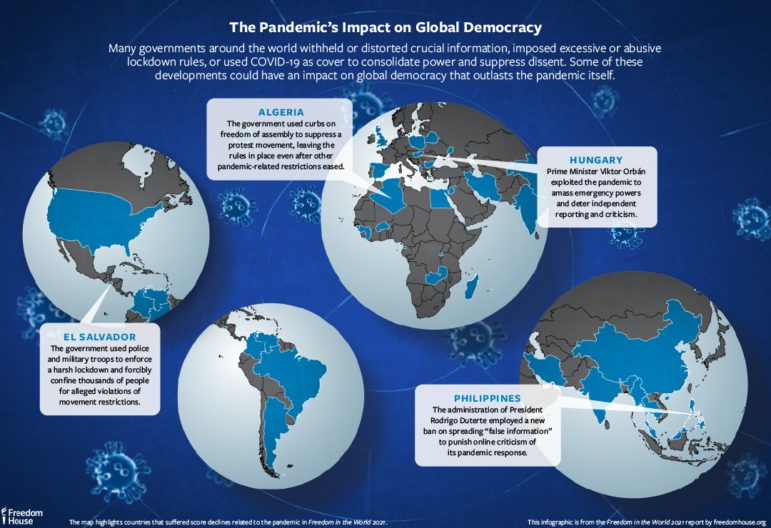
News & Analysis
Document of the Day: Freedom House Reports 15th Straight Year of Declining Freedom
Freedom House, which released its annual report Freedom in the World this week, has documented the 15th consecutive year of decline in global freedom, finding less than a fifth of the world’s population living in what it considers “free” countries.

News & Analysis
Tips for Investigating Far Right Groups Around the World
In a GIJN webinar titled “Investigating the Radical Right: A Global Perspective,” a panel of four veteran journalists with experience in digging into far right groups shared tips, open source tools, and practical insights on how to track their activities.

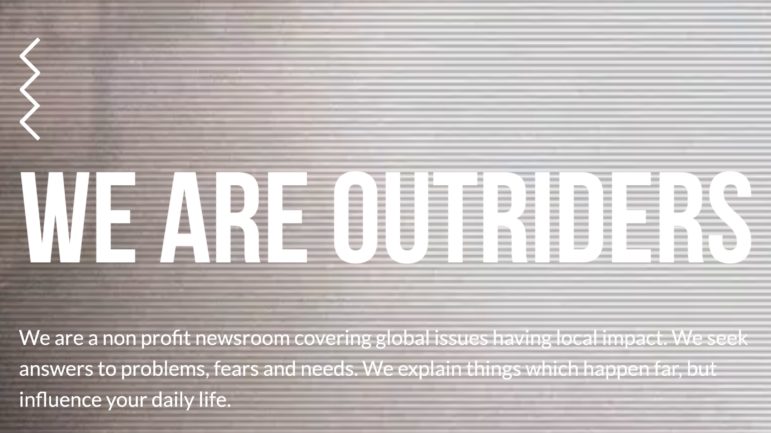
News & Analysis
How a Polish Nonprofit Newsroom Developed a Loyal Audience by Going “Newsletter First”
Outriders, the Polish journalism nonprofit, decided to postpone their membership launch and begin with a newsletter-first editorial strategy, boosted by Instagram influencers, to grow their audience and build a strong foundation for membership. And it’s working.
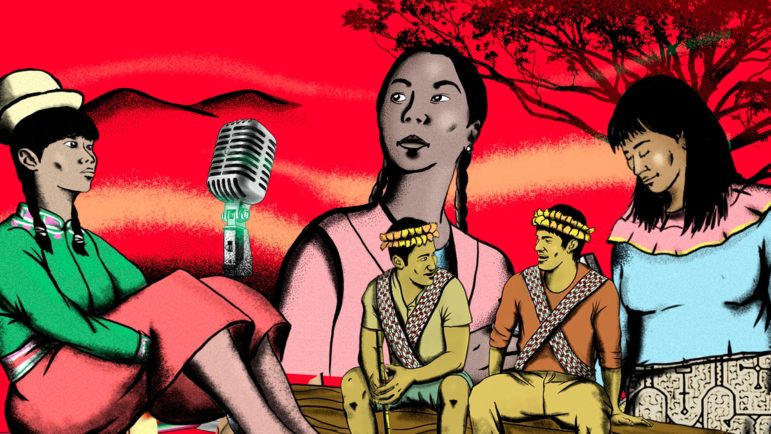
News & Analysis
The Indigenous Voices Fighting Disinformation in the Andes and Amazon
An alliance of regional radio stations, backed by the Peruvian investigative network OjoPúblico, has begun an unprecedented effort to fight disinformation in Indigenous languages for people living in the Andean and Amazonian regions. To date, hundreds of explanatory pieces about COVID-19 have been created in five Indigenous languages and broadcast by 15 radio stations in eight different regions.

Data Journalism
Data Journalism Top 10: Mission to Mars, Myanmar’s Protesters, Sand Mining, Journalism in Russia
After going through “seven minutes of terror,” NASA’s Perseverance rover managed to successfully touch down on Mars last week. Our NodeXL #ddj mapping from February 15 to 21 found reporting by The Wall Street Journal and Al Jazeera, which offers more insight into the rover’s journey to the red planet. In this edition, we also feature a story about the boom in independent journalism in Russia, an analysis of the future of South Africa’s coal mining industry, and a critique of data visualization’s ability to fully convey the realities of large-scale tragedies.

GIJN Webinar — Exporting Intolerance: How the Christian Right Is Funding Political Causes Overseas
Christian conservative groups are quietly spending millions of dollars in support of controversial movements in Europe, Africa, and Latin America that seek to roll back women’s and LGBTQI rights, and to support authoritarian political parties and causes. In this GIJN webinar we bring together three senior journalists who have investigated these groups and can offer tips on tracking the connections and following the money.

News & Analysis
Becoming Bellingcat: An Excerpt from Eliot Higgins’ New Book
When a former Russian double agent collapsed on a bench in a quiet British cathedral town, it looked like an assassination attempt. Experts soon identified the poison nerve agent Novichok A234. The team at the open source investigative site Bellingcat were watching, and waiting for a chance to dig into what had happened and who was behind it.

News & Analysis
How Journalists Can Prepare for Online Harassment, Disinformation
Wisconsin-based freelance reporter and writer Howard Hardee writes about the inextricable link between online harassment and disinformation, and what individual reporters and newsrooms can do about it.

Reporting Tools & Tips
How to Take Better Images on Your Smartphone
Smartphones have bigger hard drives and more power than some laptops. And while there are millions of apps, many of them used for filming and photography by mobile journalists, Ivo Burum says that the standard features of ordinary smartphones should be mastered first.

Undercover in the Sudanese Schools That Chain Boys
In this harrowing account, Sudanese freelance journalist Fateh Al-Rahman Al-Hamdani recounts how he went undercover to document child abuse that was occurring in Islamic educational institutions, known as khalwas, in Sudan. He also writes about his personal experience as a teenager being abused by sheikhs, as well as the actions Sudan’s transitional government has taken since the publication of his investigation.

Data Journalism
Data Journalism Top 10: Back to School, Australian Open Underdog, Amazon Oxygen Shortage, Big Tech & Green Energy
How can we get students and teachers safely back into classrooms? For many months, this has been a key question for public authorities, school leaders, and parents around the world. This topic and others topped the data journalism stories on Twitter from February 8 to 14. Check out #ddj stories from The New York Times, NPR, the Financial Times, FiveThirtyEight, and The Pudding.

Investigating South Africa’s Prison for Profit
The perpetrators of violence in South Africa tend to receive little sympathy and sparse coverage in the national press. But when Ruth Hopkins started to explore allegations of wrongdoing inside the country’s prisons, she was inundated by claims of abuse and torture. This story explores her decade-long investigation into incarceration in the country.
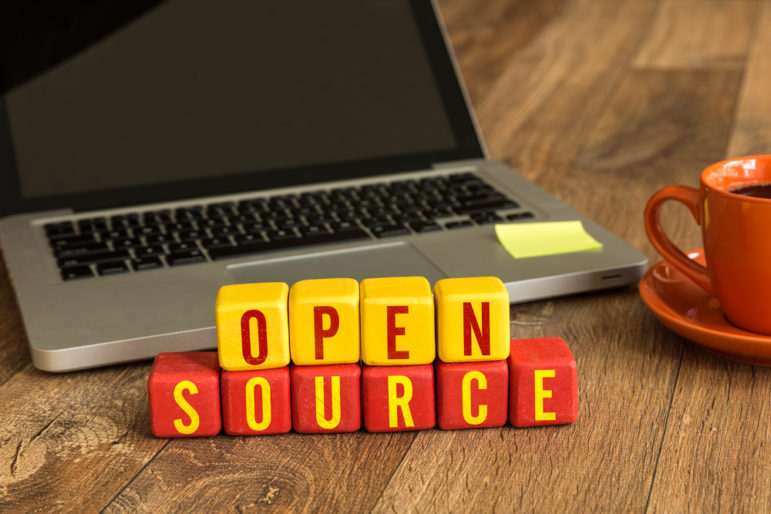
Reporting Tools & Tips
Amnesty International’s Sam Dubberley on Digital Verification and Human Rights
In this interview, Amnesty International’s Sam Dubberley discusses how open source techniques can help in the investigation of human rights abuses and gives advice for journalists interested in this type of research.

GIJN Webinar — Investigating the Radical Right: A Global Perspective
In this GIJN webinar, we bring together four senior journalists who have investigated the extremist far-right in different parts of the world. They will offer tips and tools on how to track and report on violent organizations and individuals in different contexts, and give guidance on safety.

News & Analysis
The Problem with International Aid Funding of Journalism
Development actors often pay media organizations to publish content that often is just PR material in disguise. Journalist and media development expert Prue Clarke writes that it’s time to rethink a practice that undermines both independent journalism and the aid sector’s credibility.

Member Profiles
The Small Nonprofit Shaking Up French Investigative Journalism
The French investigative journalism outlet Disclose made waves in 2019 by revealing the shocking extent of pedophilia in amateur sports and the widespread use of French-manufactured arms in the Yemen conflict. One of its founders tells GIJN why a reader-supported model is allowing it to exist “halfway between the media and an NGO.”
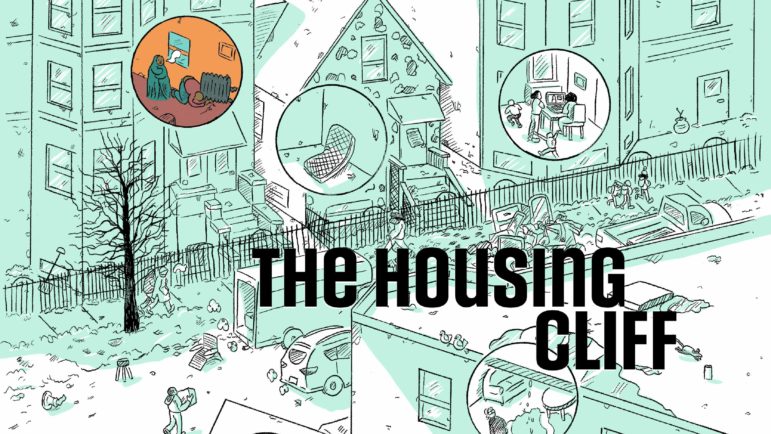
Data Journalism
Data Journalism Top 10: Biometric IDs, Data Spaghetti, Eviction Avalanche, Remote Working
With countries around the world considering the safest ways to ease lockdown measures, alongside the deployment of COVID-19 vaccines in many places, some are finding reasons to be optimistic about the end of the coronavirus crisis. But returning to once conventional daily activities, such as going to restaurants and sports stadiums, is still a distant prospect. Our NodeXL #ddj mapping from February 1 to 7 found Voxeurop covering the dangers of adopting biometric IDs and health passports, a look at Europe’s COVID-19 divide by Reuters, an analysis of leaked smartphone data by The New York Times, and a Twitter thread collection of archived data visualizations in various languages.

News & Analysis
What to Watch: Shortlisted Oscar-Nominated Documentaries in 2021
From the story of an 80-year-old spy in a Chilean nursing home to a whole family fighting the criminal justice system in the US state of Louisiana, 15 documentaries produced under tough pandemic conditions will advance in the Documentary Feature category of the 93rd Academy Awards.

Case Studies
What Journalists Can Learn from Navalny’s Investigative Team in Russia
Despite its overt political objectives, the research section of FBK — an anti-corruption nonprofit founded by Russian opposition leader Alexey Navalny — has emerged as a potent investigative team that recently attracted 110 million YouTube views for a video that exposed massive corruption at a Black Sea palace. FBK’s head of investigations told GIJN about the methods the team uses for these investigations, and what professional journalists can learn from their approach.

Data Journalism My Favorite Tools
My Favorite Tools with Al Jazeera’s Mohammed Haddad
In this edition of our “My Favorite Tools” series, GIJN spoke with Mohammed Haddad, who leads Al Jazeera’s interactive team, AJLabs, where he uses data to create compelling visual stories. Haddad explains why he is a fan of RStudio, Nivo, Mapbox, and more.
